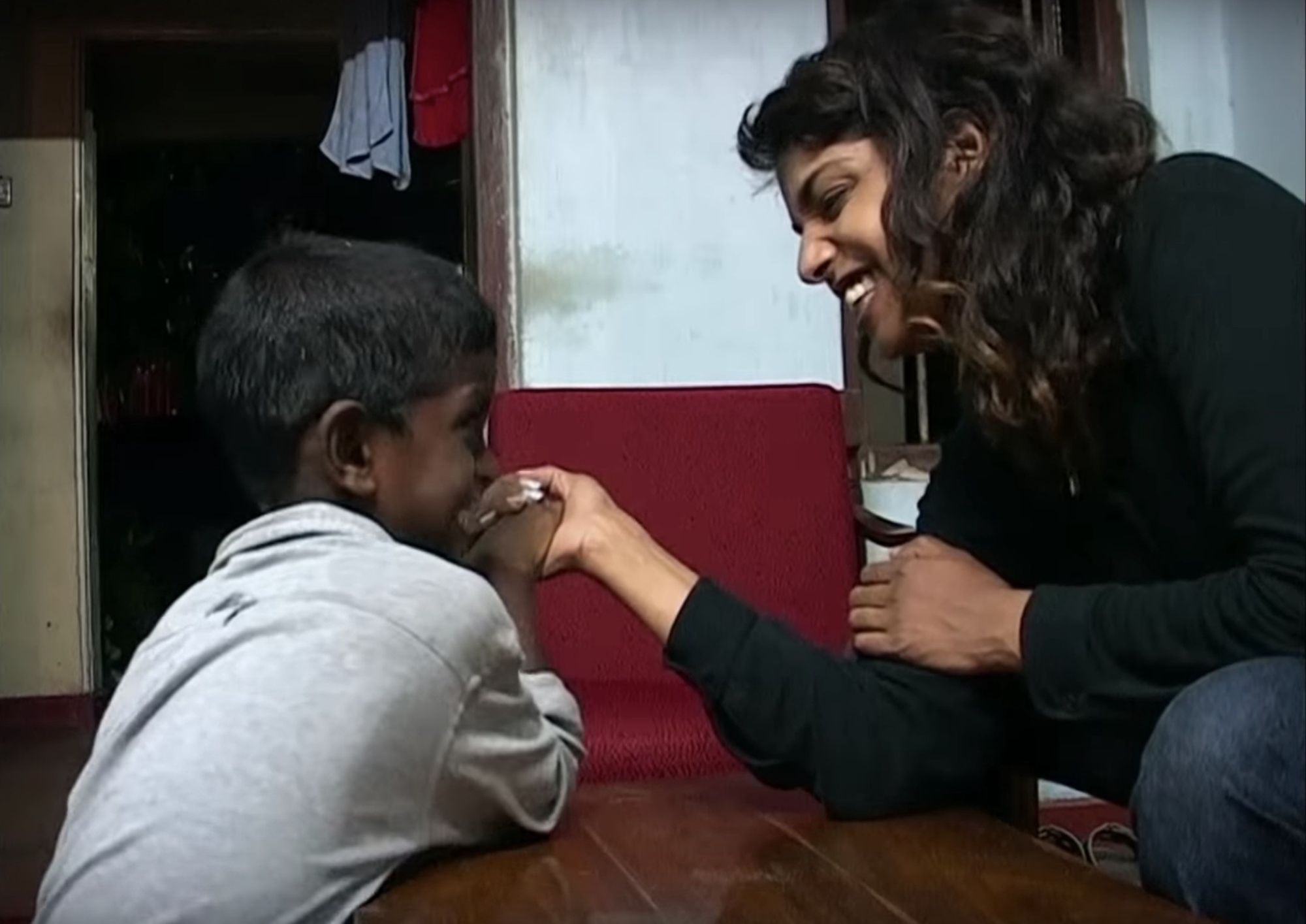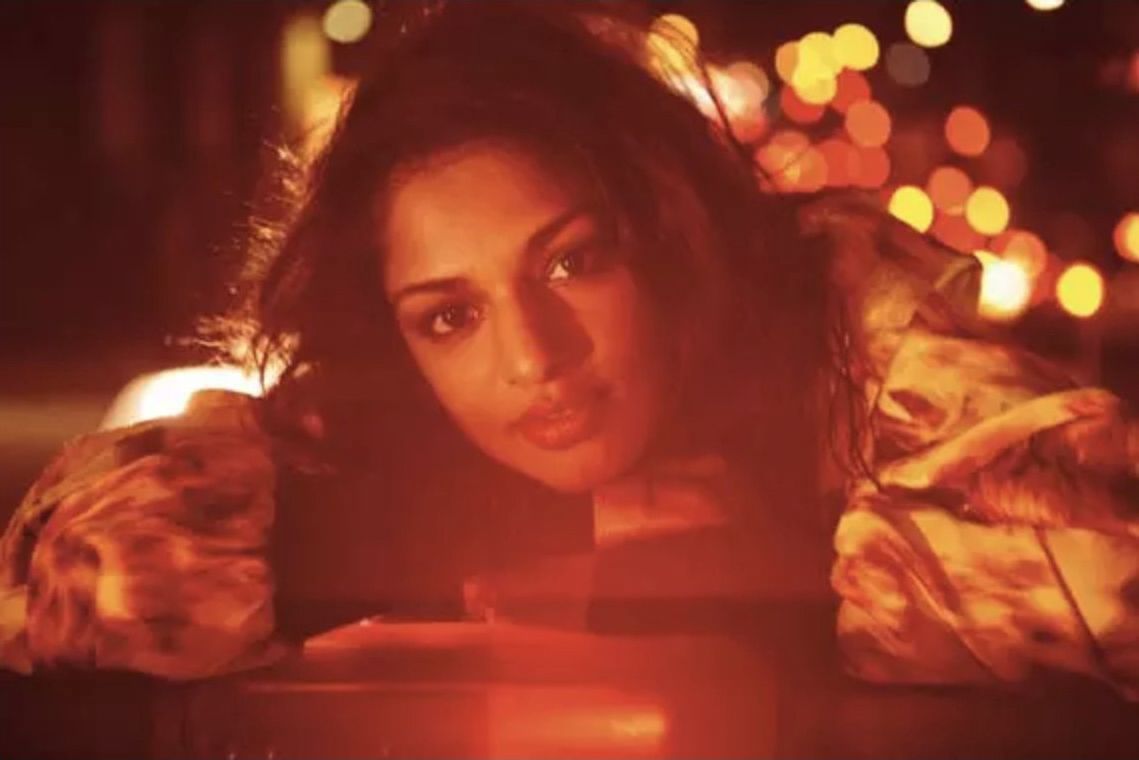Watching the excellent documentary MATANGI/MAYA/M.I.A. reminded me just how huge a superstar M.I.A. was. That’s not to snidely imply that she’s now an afterthought. No cultural figure can be constantly at peak relevance. If anything, those that burn as brightly, purely, and quickly as possible before disappearing leave the most indelible marks that will be immortalized in time. I can’t say I was ever explicitly an M.I.A. fan, but songs like Bucky Done Gun and, of course, Paper Planes were two of the most memorable songs of the 2000s, at least where I was from. The trademark gunshots from the latter song are forever etched into my memory, rattling my over-pregamed self at an M.I.A.-headlined college concert.
But after that concert, I never thought about M.I.A. all that much. Until I watched the documentary, I didn’t even realize there had been controversy arising from her New York Times Magazine interview or that she had even performed at a Superbowl halftime show (much less that she had caused a ruckus by giving the finger to the camera… which, by the way, was awesome because fuck the NFL). So MATANGI/MAYA/M.I.A. walked that nice line between nostalgia and discovery, in which the protagonist I’d known just as that beautiful British Sri Lankan woman with a couple of infectiously catchy songs had so much more to her story.
And what a story it is: daughter of a revolutionary, a restless child of immigrants who had life-changing journeys back to her ancestral homeland, a refusal to be a “normal” famous pop star. The film thankfully doesn’t insist on repeatedly telling us what a genius its subject is, something that turned me off about the last famous-person documentary I watched, McQueen. Her trips back to Sri Lanka aren’t pompously portrayed as inspirational pilgrimages, but rather, as times of self-discovery that every immigrant child needs. There’s no reverent behind-the-scenes explanation of how her signature song came to be. Its only cameo appears in a grainy lip-sync jam session with her and then-boyfriend, Diplo. The documentary trusts the audience enough to appreciate its subject’s body of work without drilling us.

Shortly into the viewing, I realized I would’ve believed anything M.I.A. told me about Sri Lanka, the Tamil Tigers, and so forth. How could anybody, especially an outsider straight male, not be captivated by her? She’s the infinitely interesting woman from another world, someone whose beauty and talent and boldness seem to irresistibly hint that just by being around her, your existence becomes special. When she took a brutally funny, out-of-nowhere swipe at Aziz Ansari by essentially calling him a minstrel prostitute, I was completely hers (as some may know, I despise Master of None).
But that’s also when I realized I’d fallen into the trap.
In Being John Malkovich, the protagonist (John Cusack) discovers a funky dimension-bending room that, when entered, allows one to briefly inhabit the mind and body of the real-life John Malkovich. For those who haven’t watched the movie, this synopsis is necessary to understand this next part.
The day after seeing MATANGI/MAYA/M.I.A., I told my Plan A friends that I’d had the weirdest sensation walking out of the theatre: I felt as if I’d switched social positions where I was now enthralled by the Exotic Other. In the words of Teen Sheng, I had Being John Malkoviched myself into the mind of a white guy, eager to explore the Exotic Other Feminine and all the excitement and cultural cred she brings.
We all know that guy exists. The Pocahontas myth (Disneyfied version) has that guy. Towards the end of Ralph Ellison’s Invisible Man, the protagonist encounters a group of self-righteous and destructive white socialists in Harlem and of course, one of them pulls out the “But I have a black girlfriend” card as a one-upper. Reality isn’t spared either, with men like Arnold Harberger using his Chilean wife to build rapport with the Chicago Boys (economic hitmen from Chile who studied at the University of Chicago during the Friedman Era). And of course, there are the hordes of Twitterati armed with “My wife is Asian” talking points.
The scary thing was realizing just how good it felt to be in that position, how seductive it was. All people of color know what it’s like to be exoticized and made subjects of rescue. For East and Southeast Asian men, however, sometimes even that seems like an upgrade because of how we’re made irrelevant. Life feels like a constant fight to retain our own place in our own homes because everything about our group — whether it be the food, women, festivities, pop culture (recent BTS craze notwithstanding) — is sought after, except for us the men. So this was a refreshing change.
What I felt for M.I.A. when watching MATANGI/MAYA/M.I.A. was what I figure many white (or any non-Asian) guy feels when he feels drawn to an Asian woman for that indescribable “different” element she provides in his life. Not every woman can be the daughter of a Sri Lankan revolutionary, but maybe she has a few stories of the ancestral homeland that imbues you, by virtue of merely lending an ear, with some credibility as a shining example of a modern progressive man. A wokebae, if you will. And when she takes a dig at a man of her own race, you laugh a little too loudly.

I wondered what my reaction would be if a South Asian guy heard that same Aziz Ansari takedown and got miffed? What if he told me that from his insider’s experience, women like M.I.A. always talked shit about guys like him? There’d be an awfully strong temptation for me to tell him that he’s high on something or, even worse, that he’s being a typical misogynist from the old country. After all, it’s in my interest to make sure the M.I.A.s of the world aren’t closed off to outsiders like me.
So that’s what it feels like to be that guy. All the better that I know so he becomes easier to fight and defeat.

Comments powered by Talkyard.